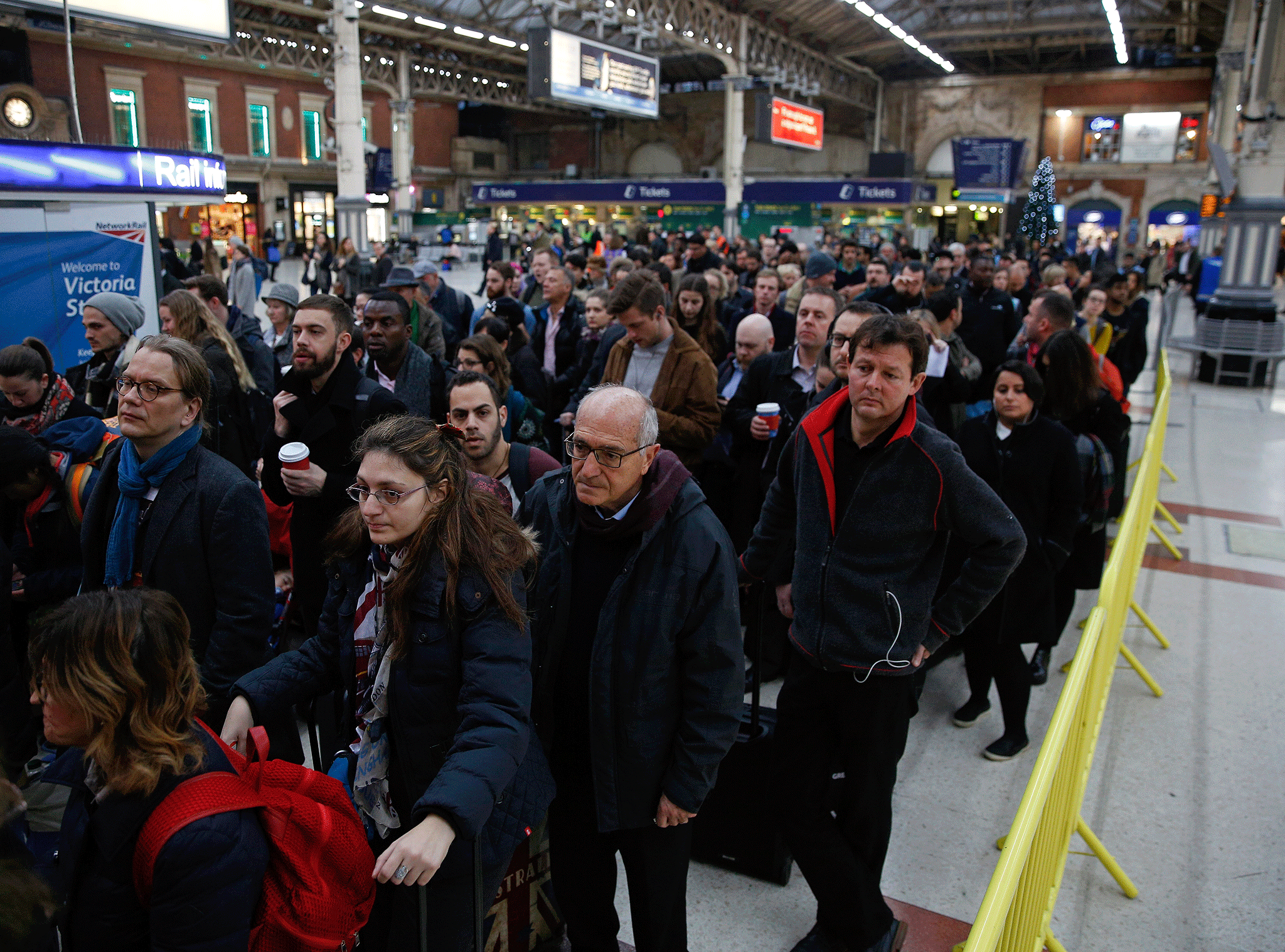Despite your nightmare commute, there are still some very good reasons to support the Southern Rail strikers
Your eight hour day and your weekends exist because of previous industrial action

Your support helps us to tell the story
From reproductive rights to climate change to Big Tech, The Independent is on the ground when the story is developing. Whether it's investigating the financials of Elon Musk's pro-Trump PAC or producing our latest documentary, 'The A Word', which shines a light on the American women fighting for reproductive rights, we know how important it is to parse out the facts from the messaging.
At such a critical moment in US history, we need reporters on the ground. Your donation allows us to keep sending journalists to speak to both sides of the story.
The Independent is trusted by Americans across the entire political spectrum. And unlike many other quality news outlets, we choose not to lock Americans out of our reporting and analysis with paywalls. We believe quality journalism should be available to everyone, paid for by those who can afford it.
Your support makes all the difference.“Jeremy Corbyn will join Southern Railway workers on picket line despite fresh strike action bringing travel misery for commuters,” wrote The Telegraph’s Michael Wilkinson this week. “That’s reassuring for the 300,000 commuters facing utter travel chaos this week,” said The Evening Standard’s Pippa Crerar. “Jeremy Corbyn’s comments hit wrong nerve with embattled commuters,” sighed The Huffington Post’s Steven Hopkins.
Notice a pattern here? Not so long ago, a Labour leader’s support for industrial action in the face of corporate incompetence would have been a given. Now it’s a shocking betrayal of long-suffering commuters. At no point in living memory has support for industrial action been so low. The Southern strikers are viewed as inconsiderate, selfish and stubborn, and are blamed just as much as the company for the strikes, in spite of the fact that they have much less to gain, and so much more to lose.
This is true regardless of one’s position on the issue at hand. In a nutshell, RMT and Aslef allege that making train doors driver-operated will reduce safety levels by reducing the number of staff on trains and will lead to eventual job losses for conductors, who will be repurposed as “on-board supervisors”. The company, on the other hand, claims that on-board supervisors will be guaranteed their roles until 2021, and that trains will not see staff reductions.
This is a similar situation to the one that led to London Underground strikes in recent weeks, with staff concerned about long-term job security and safety, while the operator seemingly negates those concerns with guarantees that are – crucially – time-limited to no longer than a few years.
What doesn’t seem to be in question is the value and morality of going on strike in the first place. Southern Rail and London Underground drivers are well-paid, with salaries around £50,000, and as good conditions as are possible when stuck in the bowels of the earth all day, dealing with some of the most frustrated and irate commuters in the western world.
This fact is regularly used as a stick with which to beat them – “How dare they go on strike when they are so well rewarded?” – ignoring the fact that it is good trade union protection and a history of refusing to have terms dictated from above that has secured them this position in the first place.
Of course, this argument won’t be for everyone – it’s sadly far too late for state school teachers to significantly improve their brutal lot through industrial action, and junior doctors last year failed to oppose the imposition of new working contracts. But think of it in broader terms. Extended working hours are becoming the norm in some industries, but the majority of us still enjoy eight-hour days and take free weekends as a given. Few, however, remember that these things are the result of industrial action – strikes and protests that were questioned and opposed just like the Southern and London Underground strikes of today.
Industrialists Robert Owen (with his famous slogan “Eight hours’ labour, eight hours’ recreation, eight hours’ rest”) and Henry Ford are often given credit for these changes, but the impact of the frontline strike action of the US Knights of Labor and the UK Red Clydeside movements is too easily forgotten, in spite of the effect they had on convincing the international labour movement to adopt the 40-hour week (including free weekends) as a key demand and principle.
So what does this have to do with Southern Rail? Well, what was true in the past is true today – nobody strikes for the fun of it, and an innocent public suffered then as it does now. Risking future employment, accepting public scorn, and putting people’s lives in turmoil are incredibly difficult things to do, and rest assured the striking unions take no pleasure in disrupting London’s infrastructure – they’re as dependent on the city’s future success as those lambasting them.
But with the failed junior doctors’ strike still fresh in their minds, Southern employees know just how much they stand to lose if they open the floodgates of top-down contract imposition, leaving their livelihoods at the mercy of savings-driven decisions.
You don’t have to agree with them, but surely we must all agree that those striking to protect what they believe in do not deserve the level of ire and public scorn they’re increasingly greeted with. After all, when it’s your future on the line, you might just see where they’re coming from.
Join our commenting forum
Join thought-provoking conversations, follow other Independent readers and see their replies
Comments